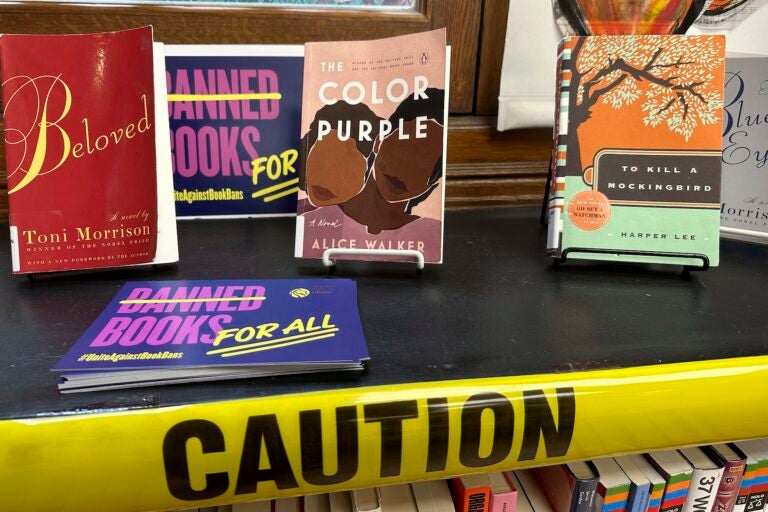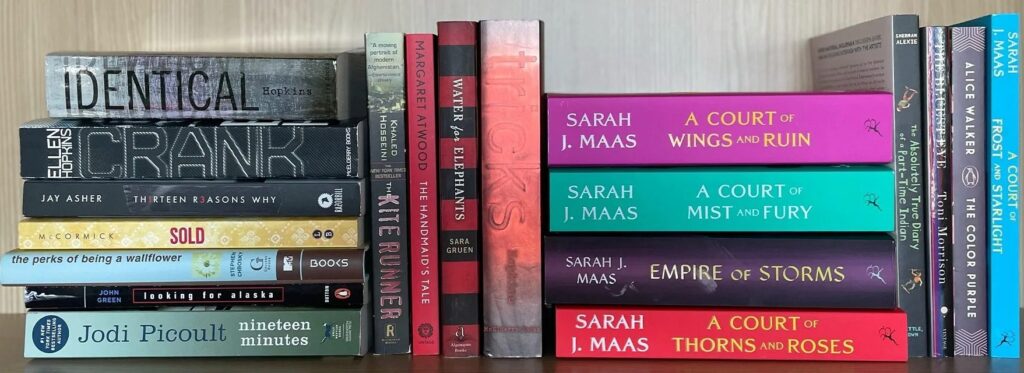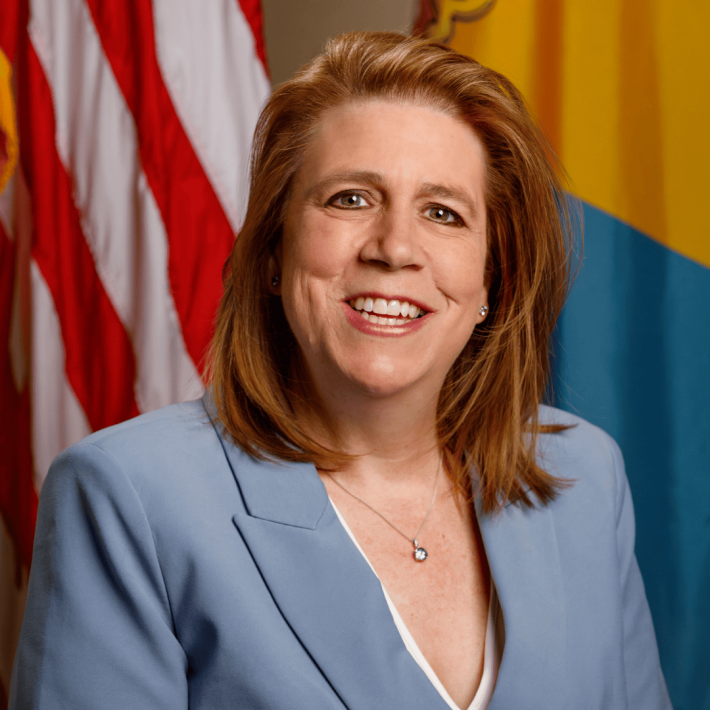Delaware bans book bans based on author’s background or partisan, ideological or religious objections
The new law creates a statewide process that school boards and communities must follow when someone wants books taken off library shelves.
Listen 2:10
FILE - A Banned Books Week display is at the Mott Haven branch of the New York Public Library in the Bronx borough of New York City on Saturday, October 7, 2023. (AP Photo/Ted Shaffrey,File)
What are journalists missing from the state of Delaware? What would you most like WHYY News to cover? Let us know.
Riding home to Delaware on a train from Washington, D.C., last year, state Rep. Krista Griffith buried her nose in her novel of the moment.
Her seatmate, a stranger, also plowed through a book.
The two soon struck up a conversation about their lifelong love of reading. Griffith, a Democrat who represents suburbs north of Wilmington, learned her literary compatriot was Kasey Meehan, who heads the nonprofit PEN America’s Freedom to Read program, a national campaign to oppose book bans.
Meehan told the Delaware lawmaker about how the group had helped create laws in about a dozen states to counter bans of books in schools and public libraries.
Those laws are a response to moves in recent years — almost all by conservative Christian groups and politicians — to remove mostly books whose themes included LGBTQ+ issues, America’s racist history or sex, Meehan said. The targeted books have ranged from picture books for preschoolers to novels for high school seniors.
“See here we were, sitting next to each other, and she told me about how she had just been in Maryland for the bill signing that Governor [Wes] Moore was doing on a Freedom to Read bill,’’ Griffith recalled last week in an interview with WHYY News. “So that sparked my interest in actually getting legislation passed in Delaware.”
That serendipitous meeting on the rails led to last week’s signing by Delaware Gov. Matt Meyer of a bill that Griffith ushered through the General Assembly this year. The law ensures that books and resources cannot be removed or banned from school and public libraries based on the author’s background or because of partisan, ideological or religious objections.
The law also requires school boards to establish a clear process for reviewing complaints about library materials and to keep books and other items that are under review available until a decision is made. Only students, parents, guardians or employees can object to what’s in that school’s collection.
Appeals of decisions can be made to a new statewide School Library Review Committee. Members include the state librarian, education secretary, and presidents of the state teachers’ union and the school administrators, school librarians and state library associations.
The Democrat-sponsored legislation passed along mostly partisan lines, with almost all Republicans voting against it.
Meehan, who is based in Philadelphia, said in an interview that she’s gratified she helped inspire Delaware lawmakers to protect the right of students and the community to decide what they want to read.
“As PEN America has been tracking this for the last four or five years, we have seen a really strong influence of outside pressures,” Meehan said.
“So that could be state legislatures who are calling on districts to remove certain books. It could be kind of like special interest groups that are well-funded, well-coordinated, that are putting pressure on districts that do not have any children in that particular school.”

‘Imposing a very narrow belief of what is and is not okay’
PEN America has documented nearly 16,000 book bans in public school libraries since 2021.
Among the titles banned are “All Boys Aren’t Blue,’’ George M. Johnson’s memoir of growing up as a gay Black man in New Jersey and Virginia.
Another is Jodi Picoult’s novel “Nineteen Minutes,’’ which chronicles a shooting in a rural New Hampshire school and its aftermath.

Meehan also mentioned Sarah S. Brannen’s picture book, “Uncle Bobby’s Wedding.” It’s the story of a girl worried that her favorite uncle will no longer have time for her after he marries his boyfriend. In its original form, published in 2008, the characters were guinea pigs.
“The current wave of book banning is certainly coming from the right,’’ Meehan said. “And what they are imposing on school systems and public libraries is a very narrow belief of what is and is not okay in those systems.”
Annie Norman, Delaware’s state librarian, helped craft the bill and embraces the new process.
“In Delaware’s case, it’s more kind of heading off problems,’’ Norman said. “Let’s make sure we don’t have problems, and it’s protecting the staff as well.”
Norman especially appreciates that the law forbids schools and school boards from disciplining or retaliating against librarians for doing their jobs. “In other states, librarians have been locked up for some of this,’’ she said.
Meyer, a lawyer and entrepreneur who also taught middle school math in a Delaware public school, lauded the new law in a written statement.
“Freedom of expression and access to diverse ideas are the bedrock of a strong democracy,” Meyer said. “Our libraries remain places where every child can explore, learn and see themselves reflected in the stories they read. Our communities are stronger when we engage with ideas, not erase them.”
Sen. Tizzy Lockman, a Wilmington Democrat, co-sponsored the bill and said it’s a critical step for Delaware to take.
“This is not so much about banning the banning of books, but really about making sure there was a due process in place for concerns to be raised about material and there to be a clear path to be taken to resolve what was going to be done about those concerns,’’ Lockman said.
“It was just more trying to read the national room of polarization and wanting to make sure we were positioned to handle that in the way we would like to think we handle things in Delaware. This made all the sense in the world to make sure we had that in place when it came to the materials that students have access to in our libraries.”

Griffith said the bottom line for her is that libraries should be places where kids and adults can explore a wide range of concepts and viewpoints, even if others disagree with them.
“We want them to be a place of freedom to choose to read,’’ Griffith said. “And to have access to ideas and other people’s views on anything from their worldview to how they live their lives.”


Get daily updates from WHYY News!
WHYY is your source for fact-based, in-depth journalism and information. As a nonprofit organization, we rely on financial support from readers like you. Please give today.






